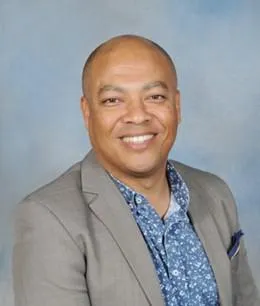We need more women planning and building SA’s developments

While housing often takes centre stage in discussions about women in property, commercial and industrial property is also growing and opening new doors for women leaders.
Image: Freepik
Property development has traditionally been a male-dominated sector, but women have increasingly started to show up in boardrooms as well as on construction sites and in planning offices.
“Women are making significant changes in the property development market,” says Henry Chitsulo, a former Director in the Property Finance Division at Standard Corporate.
“Women bring a broader perspective, looking beyond financial outcomes to include community impact, sustainability, and social responsibility.”
One example is the Victoria Mxenge Housing Project in Khayelitsha.
This came about as a result of a women-led savings group, which eventually funded the planning, design and building of homes for women.
The women started by saving R1 a day and within a few years, were able to start building houses. They were involved in the building process themselves and learned new skills as a result. Over 5000 houses were eventually built and the project garnered international acclaim – not only because of the houses that were built, but for the impact it had on the community.
“When a German funder, Misereor, donated a brick machine, Mama Msiza and Mama Dlamini went to a brick factory, while a few others went to a training centre in Khayelitsha to learn brick-making," writes author Salma Ismail in her book, The Victoria Mxenge Housing Project.
But there are other examples too, showing for instance, where female architects were involved in designing projects that provided other women with a bigger role in terms of providing skills and creating jobs. In Cape Town, areas like Mtshini Wam and Flamingo Crescent were redesigned through reblocking – a process that reorganises shacks into safer, more structured layouts. In Mtshini Wam, it resulted in improved safety for women and children and the addition of shared courtyards and private bathroom areas. Clear roads provide better access for emergency services and improves the quality of life for residents.
“Cape Town has a huge housing backlog, robbing people of their dignity” says Anthea Houston, CEO of Communicare, which provides affordable accommodation to Cape Town residents. The organisation erects mixed-use and mixed-income social housing and emphasises inclusion and tenant-centred facilities. As Communicare is a social enterprise, the income generated from rental or sold properties is invested into tenant services and developing new properties.
Female developers like Anthea take a keen interest in improving people’s lives and don’t only see property development as a commercial enterprise – but a social imperative as well. Houston says municipalities lack technical capacity for delivering housing while state land is not prioritised and used for social housing. She also feels like civil society can play a bigger role in providing decent accommodation for the many who try to survive in informal housing.
While housing often takes centre stage in discussions about women in property, commercial and industrial property is also growing and opening new doors for women leaders. SA faces demand for warehousing, last-mile logistics and flexible distribution facilities. In the first quarter of 2025 it was reported that rentals for industrial space of 500m² increased by 7.3% compared to the same period a year before. The sector is booming and has shown strong growth for the 2024-2025 period.
The focus on social impact is also mirrored in commercial and industrial property, where women leaders are carving out new opportunities. “If one looks at the listed sector, there’s only one female-led Real Estate Investment Trust (REIT) company in a pool of about 30 REITs,” says Nonhlanhla Mayisela, CEO of the Izandla Property Fund. The company focuses on developing and investing in logistics warehouses, office parks and other commercial spaces and was created as a subsidiary of Investec Property Fund Ltd.
Nonhlanhla says there are a lot of career opportunities in the sector. Nomzamo Radebe, Chief Operating Officer at SA Corporate Real Estate Ltd, agrees with her. “We are definitely still a minority as black women in the real estate industry, but I do see a shift happening.” With over 20 years in the sector, Radebe holds a CA(SA) qualification, but when she moved into property development, she realised the need for more industry-specific expertise.
“In this sector, what is really important is your technical expertise, the professional skills you are bringing to the table. It is less about gender and more about technical knowledge, so I think women interested in this career should set out to gain more skills.”
It is clear that the property development market also has many career choices for women, but they need to grab it and own it. Nombasa Mawela, the first black South African female property professional to lead a major branch (Seeff Property Group) in Dubai says, “Real estate offers enormous opportunities for women in South Africa. That said, you have to make it happen; it is not the type of career where someone else is going to lay out a career path for you. You have to do that for yourself, but the rewards are worth it.”
Chitsulo, who also facilitates the PGDip Property Development course at the UCT GSB, agrees.
“The property development sector is growing and evolving, and there is a strong focus on diversity and transformation. This creates significant options for women, whose skills, perspectives and leadership skills are increasingly recognised as vital to driving innovation and sustainable growth. It can also be a very lucrative and empowering career choice for young women.”
Jodie Martin is the UCT GSB Head of Department of Executive Education.

Jodie Martin is the UCT GSB Head of Department of Executive Education.
Image: Supplied.
BUSINESS REPORT